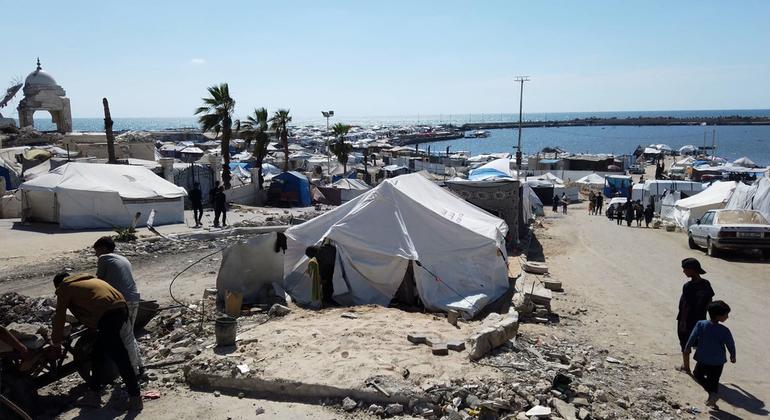The healthcare system in Gaza is facing an unprecedented crisis, overwhelmed by the increasing number of dead and injured arriving at aid distribution centers. The World Health Organization (WHO) has warned of the severe humanitarian emergency afflicting the region. Dr. Thanos Gargavanis, a trauma surgeon and emergency response official with the WHO, indicated that medical staff are operating on a tight line between operational capacity and total disaster.
This Tuesday, new incidents were reported in which numerous Palestinians lost their lives while attempting to access food supplies in Khan Younis, in southern Gaza. Dr. Rik Peeperkorn, the WHO representative in the Occupied Palestinian Territories, noted that these events have resulted in “hundreds of casualties,” exceeding the capacity of the Nasser Medical Complex, the largest referral hospital in the region. This complex, the only major hospital in Khan Younis, is located in an area under evacuation orders from the Israeli army.
Healthcare activities have been severely impacted by the reduction of humanitarian space, with over 80% of the territory under mandatory evacuation. While the Nasser Medical Complex is trying to maintain its operations, its capacity is limited. Meanwhile, the Al-Amal Hospital, managed by the Palestinian Red Crescent, has stopped admitting new patients due to ongoing military operations.
The fuel shortage has worsened the situation, as only 17 of the 36 hospitals in Gaza are operating partially, and medical supplies are extremely limited. The entry of fuel into the Gaza Strip has been prohibited for over 100 days, further complicating the situation. Yesterday, more than 200 patients were transferred to the Red Cross field hospital in Al Mawasi, setting a new record for treating casualties in a single incident.
Gargavanis emphasized that there is a clear correlation between food distribution points and incidents resulting in mass casualties in areas like Rafah and Khan Younis. The injuries suffered by those trying to access aid are mostly gunshot wounds, although the WHO cannot determine accountability for these incidents.
Since late May, the UN and other humanitarian organizations have been marginalized in aid distribution in Gaza due to a new model backed by Israel and the United States, which relies on private military contractors. The WHO has expressed concern, noting that these new initiatives are frequently linked to incidents with mass casualties, and has urged for the lifting of aid restrictions.
To mitigate the crisis, Peeperkorn has called for the transportation of medical supplies to Gaza via all possible routes, highlighting that 33 WHO trucks are waiting in Al Arish, Egypt, and another 15 in the West Bank, ready to provide critical supplies to the population.
Source: MiMub in Spanish










